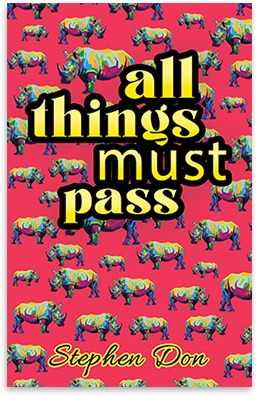
The Man Who Planted Trees
Ecologists and climatologists, geographers and geologists, have known for quite some time the baleful effect Man has had upon the Environment. Long before Rachel Carson raised the alarm in the early sixties about the harmful effects of pesticides on the natural world, the German explorer Alexander von Humboldt had seen with his own eyes the degradation of forests in equatorial South America -and this a full generation before Darwin set sail on his voyage of discovery in the Beagle in December 1831. Von Humboldt is almost forgotten in Europe, at least by the man or woman in the street. One could ascribe this public amnesia to the fact that the German died in the middle of the nineteenth century, actually in 1859 which was the year of the publication of Darwin’s On the Origin of Species.
All the above is -or should be- public knowledge, and I mention it merely as
background to a charming little book I first read some dozen or so years ago:
The Man Who Planted Trees (by the French novelist Jean Giono). The story behind
Giono’s novella is interesting in itself. It first saw the light of day in
Vogue magazine in March 1954 as The Man Who Planted Hope and Grew Happiness. So
there is a moral message, if you will, folded inside the story of a simple
Provençal peasant (Elzéard Bouffier) who has made it his life’s mission to
repopulate the countryside with trees. The book can be read as a fable about
Goodness. That is one aspect of the story. But it is also a kind of
Do-It-Yourself manual about the most basic kind of arboriculture:
“The shepherd went to fetch a small sack and poured out a heap of acorns on the
table. He began to inspect them, one by one, with great concentration,
separating the good from the bad…When he had set aside a large enough pile of
good acorns he counted them out by tens, meanwhile eliminating the small ones
or those which were slightly cracked, for now he examined them more closely.
When he had thus selected one hundred perfect acorns he stopped…”
Elzéard has a metal rod which he uses to make a hole in the ground to plant
an acorn. And he plants and plants and plants. Day after day, and year after
year. This is why the story reads like a fable, because this is the man’s total
obsession. He is not distracted by having to go to an office to earn money to pay
bills. He is abstracted from the quotidian world of living among others and
conforming to the pre-set order of society. And it is this which gives the
story its special quality, that in its heart is the deep connection between Man
and Nature. Indeed, the connectedness of one aspect of a locale to other
aspects is so intrinsic and so basic that it was not seen or understood until
very recently. But Giono found words at once simple and poetic to express this
connectedness nearly 70 years ago:
“The wind, too, scattered seeds. As the water reappeared, so there reappeared
willows, rushes, meadows, gardens, flowers, and a certain purpose in being
alive. “
The Man Who Planted Trees can be read easily in a day or two. I recommend it for its simplicity of style and for its deep sense of hopefulness. It is a thin volume, but one with immense heart and wisdom.
Post Views : 645